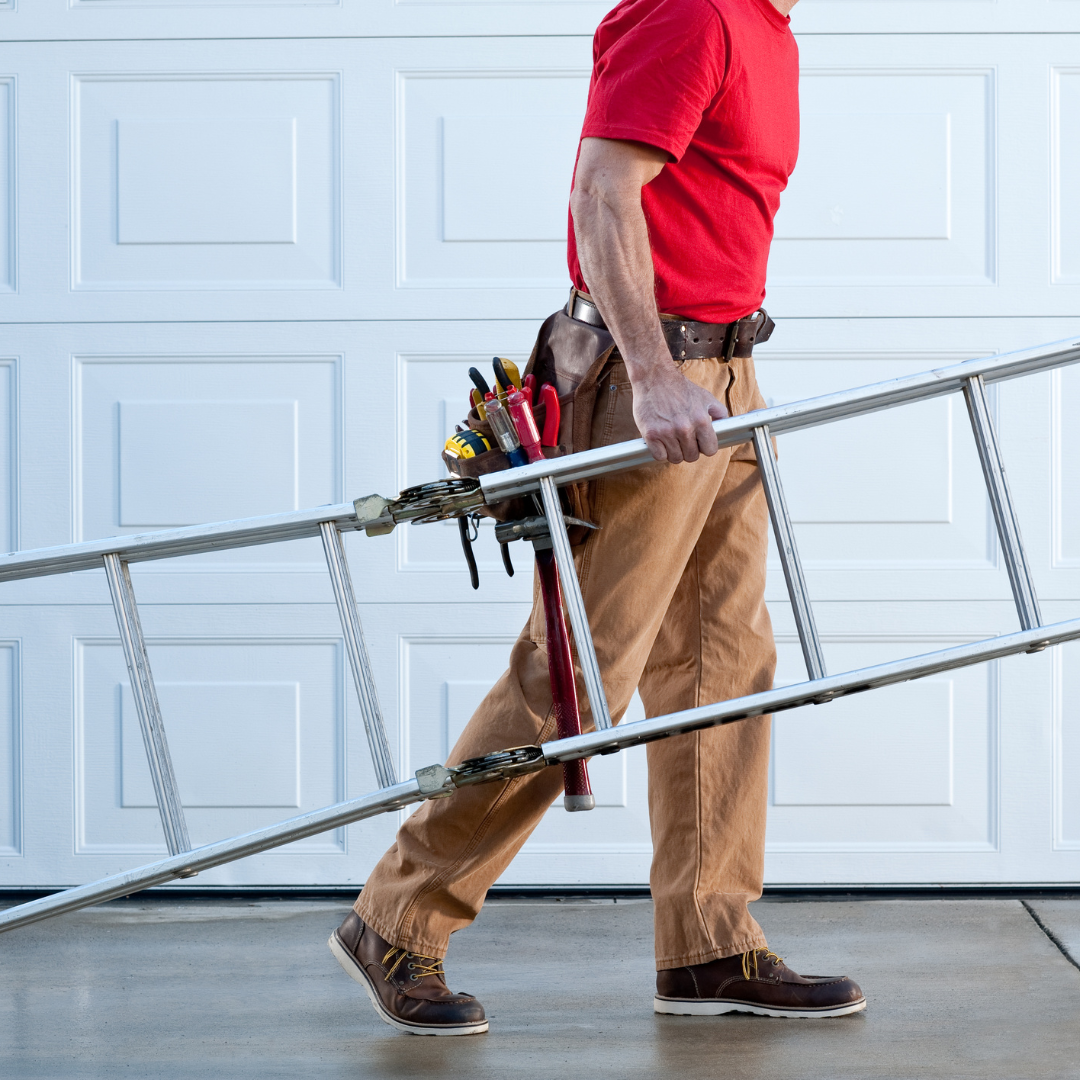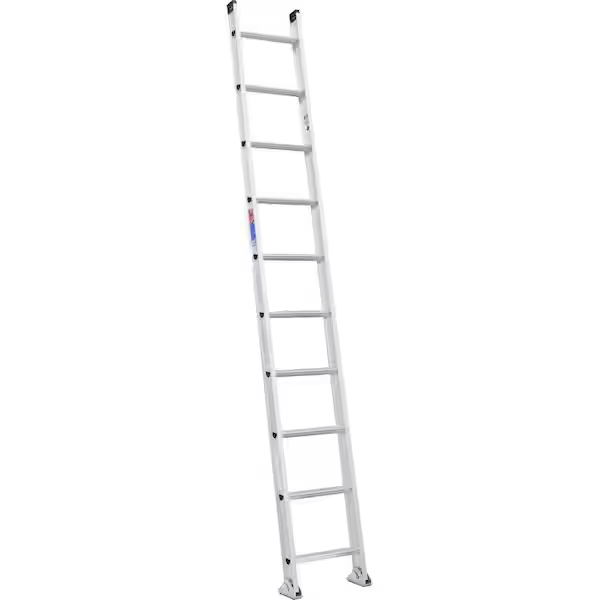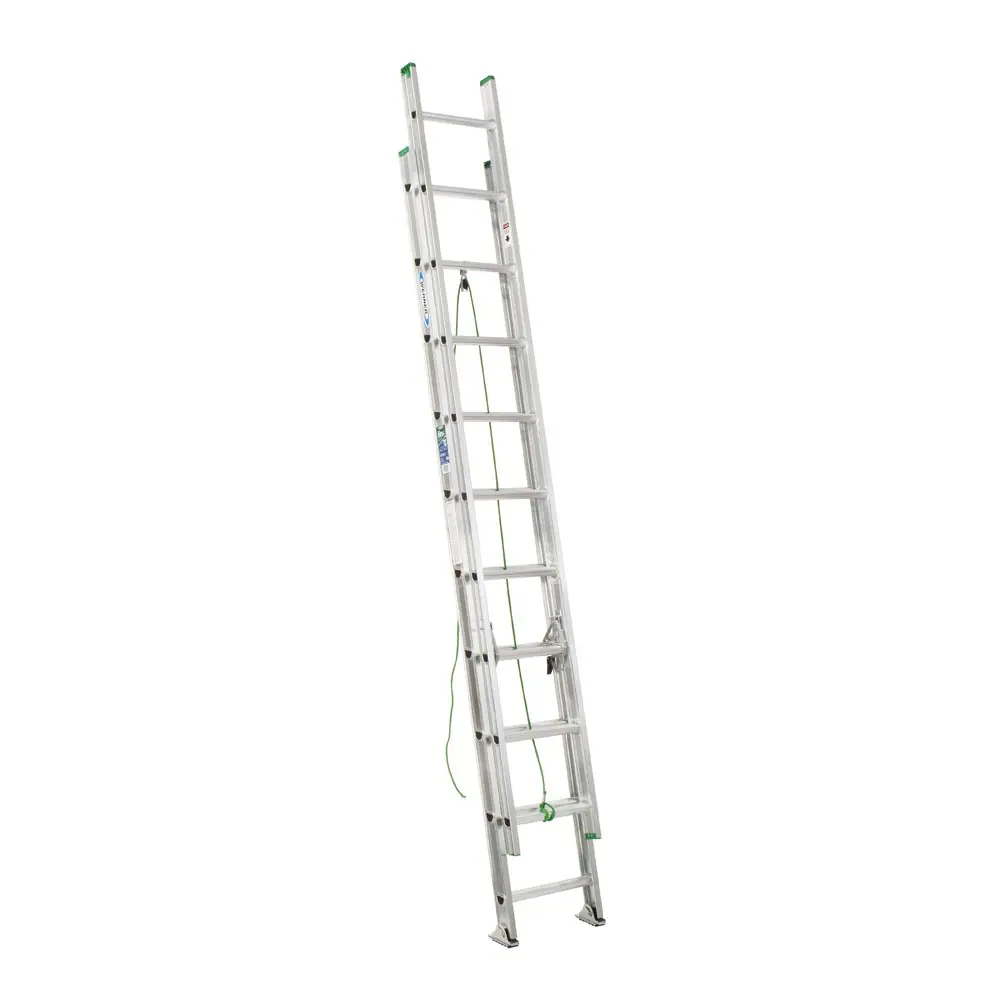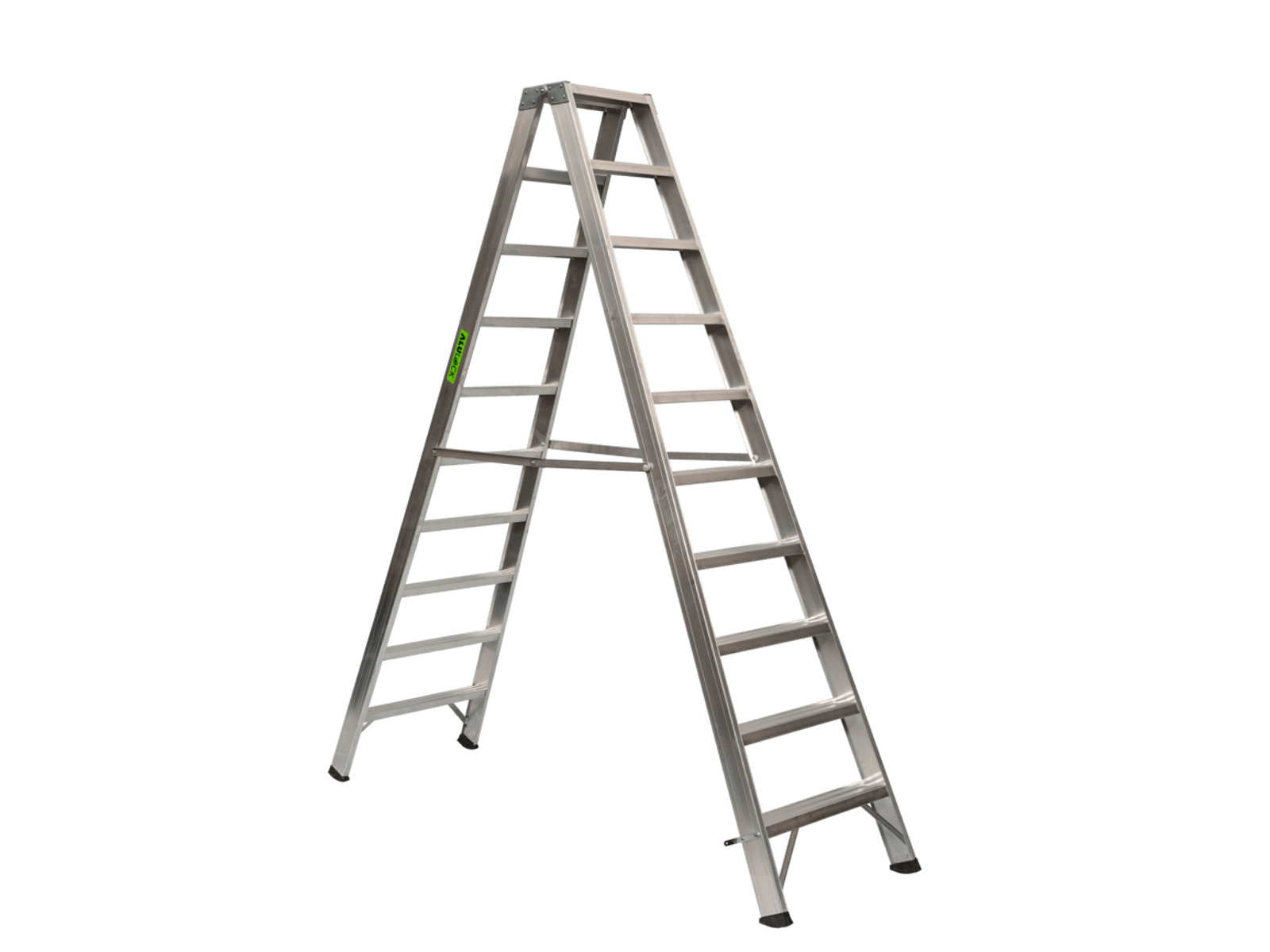Ladder Safety 101
March is National Ladder Safety Month, the perfect time to learn proper ladder safety techniques to keep yourself safe. In the United States, over 500,000 individuals seek medical treatment every year due to ladder-related incidents. Here at Elite Roofing and Restoration, where ladders are indispensable tools in our trade, prioritizing safety is important. That's why we're taking the opportunity to share some ladder safety tips, ensuring that whether you're at work or home, you're equipped with the knowledge to complete your task safely.
5 Basic Types of Ladders
Stepladders
Versatile and easy to set up, stepladders feature an expanding upside-down "V" shape. They're perfect for tasks like painting, decorating, or light construction work.
Straight Ladders
These single-sided ladders are portable and ideal for projects requiring access to walls, like roofing or exterior maintenance.
Platform Ladders
With a platform at the top, these self-supporting ladders allow you to stand safely at their highest point. They're great for longer tasks like painting or landscaping.
Extension Ladders
Adjustable in length, extension ladders are perfect for reaching tall heights. Ideal for roofing or construction projects, they offer versatility and stability.
Trestle Ladders
Designed to support two people at once, trestle ladders are self-supporting and portable. They're great for collaborative projects or tasks requiring close proximity, such as painting or multi-person installations.
Ladder Safety Tips
- Inspect the Ladder Before Use
Before climbing a ladder, check to make sure it is in good, working condition. Make sure the support bracers are not bent. Check that the feet of your ladder have slip resistant contact surfaces to keep the ladder in place.
- Level Footing
When setting up a ladder, make sure you place it on firm, level ground. Uneven ground can lead to the ladder shifting when you ascend.
- Place Wisely
Position the ladder out of the way of doors, pedestrians, or hazards that bump the ladder while you are atop it.
- Maintain Three Points of Contact
Anytime you are using a ladder, you should maintain 3 points of contact to reduce your risk of falling. This means that you should always have 2 hands and 1 foot, or 1 hand and 2 feet making contact with the ladder at all times.
- Secure Work Tools
Before ascending the ladder, make sure you secure any tools you will be using or carrying to your person. Never carry items in your hands while climbing up or down a ladder. If your tools are not properly secured and slip while you are on the ladder, you may feel the instinct to reach for the tool, but this can distract you and cause you to lose your balance.
- Avoid Loose Clothing
Loose clothing or accessories are a hazard while you are climbing. They can get caught on the ladder, taking your attention away from what you are doing to untangle them. Sandals or shoes with loose laces could become a tripping hazard, be sure to wear proper fitting shoes with rubber soles for maximum traction.
- Stay Centered
Keep your center of gravity in the middle of the ladder rungs. Placing too much weight on either side of the ladder can cause it to shift. If you are using a ladder for a task, such as painting, do not lean past the side rails of the ladder to increase your reach. Instead, safely descend the ladder and reposition it as needed.
- Do Not Exceed the Maximum Weight Capacity
Make sure that you and your equipment do not exceed the weight limit of the ladder. Exceeding the weight limit can cause the ladder to collapse, increasing your risk of injury.
- The Top Rung is not for Standing
Unless you are using a platform ladder, the top rung is never meant for you to stand on. In fact, most ladder manufacturers (and ER doctors) advise against using the top 3 rungs of a ladder. Choose a ladder that is tall enough for your needs and always follow the instructions on your ladder.
- Check the Weather
For outdoor use, refrain from using ladders on rainy or windy days. Inclement weather can cause ladder instability. When setting up your ladder, make sure the ground is not muddy, soft, icy or wet, as this reduces the traction of the base of the ladder.
- Don’t Climb Solo
Climbing a ladder alone leaves you vulnerable in the event of an accident. Always be sure someone is with you to monitor and assist if needed.
Ladder Safety Month
Avoiding ladder injuries should be easy, but many people aren’t aware or disregard the rules of ladder safety. We know that not everyone works with ladders on a daily basis. Take this opportunity to educate your friends, family or coworkers about proper safety precautions when using a ladder. Whether you’re a pro or tackling home projects, your safety is the most important thing.
Elite Roofing and Restoration is your source for quality roof repair and replacement.
In addition to roof replacements and repairs, both commercial and residential, we offer a considerable list of additional home repair services to assist you with any general construction needs you may have.
Contact us today to schedule your no-hassle, complimentary roof inspection today.






